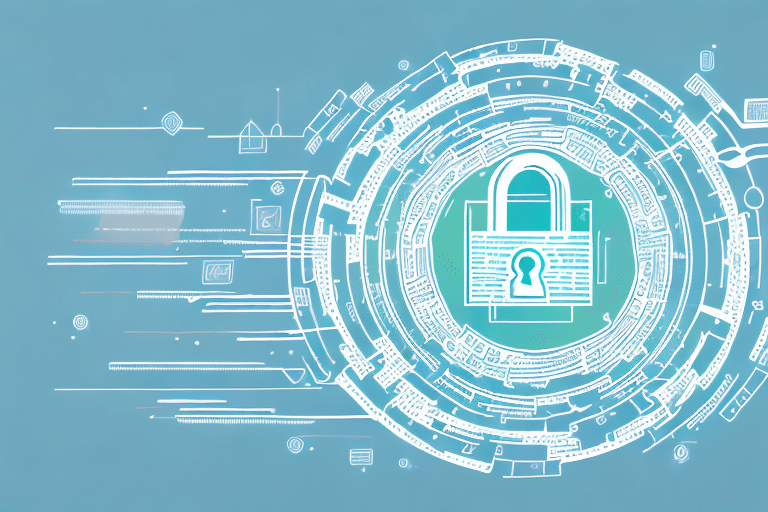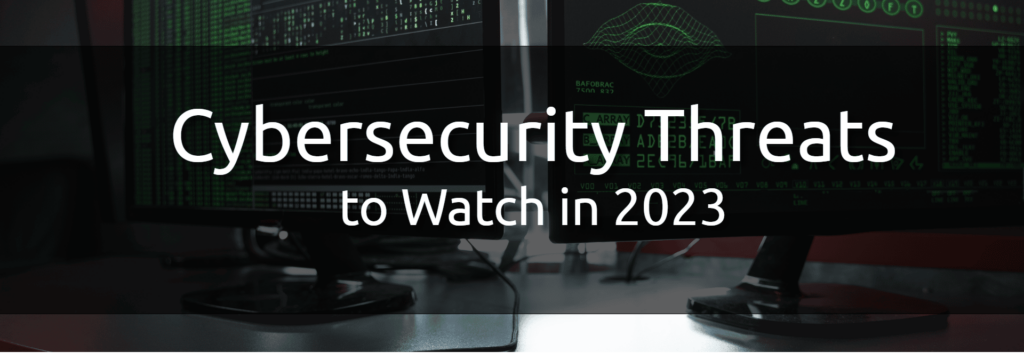Identity theft has become a pervasive problem in our modern society. With the increasing digitization of personal information, criminals have found new ways to steal identities, leaving individuals and businesses vulnerable to catastrophic damage.
In recent years, blockchain technology has shown great promise in addressing this issue. This article will explore the nature of identity theft, the basics of blockchain technology, and how blockchain can be used to end ID theft.
On This Page:
Understanding Identity Theft
Identity theft refers to the illegal practice of using someone else’s personal information for financial gain. This can include stealing credit card numbers, social security numbers, and other confidential information that can be used to access bank accounts or commit fraud.
ID theft is a growing problem in today’s digital age. With the increasing amount of personally identifiable information available online, it has become easier than ever for criminals to steal identities. In fact, according to a report by the Consumer Sentinal Network, the FTC received over 5.7 million fraud and identity theft reports, 1.4 million of which were specific to identity theft.
How Identity Theft Occurs
Identity theft can occur in a variety of ways. For example, data breaches at large corporations have resulted in the theft of millions of people’s personal information. In other cases, hackers use phishing scams or malware attacks to gather sensitive data. Additionally, thieves can steal mail or rummage through trash cans to find discarded personal documents like bank statements or utility bills.
One particularly insidious form of identity theft is known as “synthetic identity theft.” This occurs when a criminal combines real and fake information to create a new identity. For example, they might use a victim’s social security number and combine it with a fake name and address. This makes it difficult for victims to detect the theft, as the identity being used is not entirely fake.
The Impact of Identity Theft on Individuals and Businesses
The consequences of identity theft can be devastating for both individuals and businesses. Victims of identity theft can experience financial loss, damage to their credit score, and often spend countless hours dealing with the fallout of the theft. In some extreme cases, identity theft has led to lawsuits, bankruptcy, and even loss of jobs. Businesses that fail to protect their customers’ personal information can be subject to fines, lawsuits, and loss of trust from customers.
ID theft can also have a ripple effect on the economy as a whole. When large numbers of people are victims of identity theft, it can lead to a decrease in consumer confidence and spending. This, in turn, can have a negative impact on businesses and the overall economy.
Current Methods to Prevent Identity Theft
Currently, organizations use many methods to prevent identity theft. These include encrypted communications, secure data storage, and multi-factor authentication. While these methods have helped decrease the frequency of identity theft, they are not foolproof. Hackers continually find new ways to exploit vulnerabilities in these systems.
One promising new technology for preventing ID theft is blockchain. Blockchain is a decentralized ledger that records transactions in a secure and transparent way. By using blockchain, organizations can create a tamper-proof record of their customers’ personal information, making it much more difficult for criminals to steal identities.
Another important step in preventing identity theft is education. By teaching people how to recognize and avoid common scams, such as phishing emails and fake websites, we can help protect them from becoming victims of identity theft.
In conclusion, identity theft is a serious problem that affects millions of people every year. While there are steps that individuals and organizations can take to prevent it, there is no foolproof solution. It is up to all of us to remain vigilant and take steps to protect our personal information.
What is Blockchain Technology?
Blockchain technology is a revolutionary concept that has taken the world by storm. It is a distributed digital ledger that is immutable, transparent, and secure. The technology allows users to store information in a decentralized manner, which means that no single entity controls the blockchain. Unlike traditional databases, blockchain records are not controlled by a single entity, making them less susceptible to tampering or hacking.
Blockchain technology is based on a decentralized network of computers that work together to verify and record transactions. The network is made up of nodes, which are individual computers that store a copy of the blockchain. Each node on the network has a copy of the blockchain, and they work together to verify and record transactions. This makes the blockchain technology more secure and reliable than traditional databases.
The Basics of Blockchain
The basic premise of blockchain is that it allows multiple parties to verify and record transactions. Blockchain technology works by creating blocks of data that are linked together in chronological order, forming a chain. Each block contains a unique identifier, a timestamp, and a record of transactions. Any attempt to alter or delete a block would require consensus from the entire network, making it virtually impossible to change the records that have already been added to the blockchain.
Blockchain technology is based on a consensus mechanism, which means that all the nodes on the network must agree on the validity of a transaction before it is added to the blockchain. This consensus mechanism makes blockchain technology more secure and reliable than traditional databases.
Key Features of Blockchain Technology
Blockchain technology has several unique features that distinguish it from other forms of digital storage. These features include:
- Decentralization: no single entity controls the blockchain. The blockchain is maintained by a network of nodes, which work together to verify and record transactions.
- Immutability: once data is stored on the blockchain, it cannot be altered or deleted without consensus from the entire network. This makes the blockchain technology more secure and reliable than traditional databases.
- Transparency: all transactions on the blockchain are visible to anyone who has access to it. This makes blockchain technology more transparent than traditional databases.
- Security: blockchain technology uses encryption and smart contracts to enhance security. This makes blockchain technology more secure than traditional databases.
Blockchain Applications Beyond Cryptocurrency
While blockchain technology is best known for its role in cryptocurrency, it also has a wide range of applications beyond finance. These include:
- Record-keeping: blockchain technology can be used to store and manage records in a secure and decentralized manner. This makes it ideal for industries such as healthcare and real estate.
- Voting systems: blockchain technology can be used to create secure and transparent voting systems. This makes it ideal for elections and other voting processes.
- Supply chain management: blockchain technology can be used to track and manage the supply chain in a secure and transparent manner. This makes it ideal for industries such as logistics and manufacturing.
- Identity management: blockchain technology can be used to create secure and decentralized identity management systems. This makes it ideal for industries such as banking and finance.
Overall, blockchain technology is a revolutionary concept that has the potential to transform the way we store and manage data. Its unique features make it more secure, transparent, and reliable than traditional databases, and its wide range of applications makes it ideal for a variety of industries.
How Blockchain Can Address Identity Theft
Identity theft is a growing concern in today’s digital world. With the increasing amount of personal information stored online, it has become easier for hackers to access and steal sensitive personal data. However, blockchain offers a solution to this problem. Blockchain technology is a secure, decentralized network that can help combat ID theft in several ways.
Decentralized Identity Management
Traditional digital identity management systems rely on centralized databases to store personal information. This makes it easier for hackers to breach these databases and steal information. However, blockchain-based identity management involves decentralizing this process and storing personal information on a secure, distributed network. This means that instead of relying on a single entity to manage a user’s digital identity, users control their own information through private keys, adding an extra layer of security to the process.
Decentralized identity management also means that there is no single point of failure in the system. If one node in the network is compromised, the rest of the network remains secure, making it much more difficult for hackers to steal information.
Enhanced Security Through Encryption and Smart Contracts
Blockchain technology uses encryption and smart contracts to make it virtually impossible for hackers to access or alter information on the blockchain. Smart contracts allow for the automatic execution of transactions, reducing the need for trust in a system. Additionally, blockchain uses encryption to protect data, making it more secure than traditional methods of data storage.
Encryption is the process of converting plain text into a coded message that can only be read by authorized parties. This means that even if a hacker were to gain access to the data, they would not be able to read it without the encryption key.
Smart contracts are self-executing contracts with the terms of the agreement between buyer and seller being directly written into lines of code. This means that once the terms of the contract are met, the contract is automatically executed, reducing the need for intermediaries and increasing security.
Immutable and Transparent Record-Keeping
One of the key benefits of blockchain technology is its immutability and transparency. Because blockchain data cannot be altered or deleted, personal information stored on the blockchain is safer from tampering or deletion. Additionally, because transactions on the blockchain are visible to anyone who has access to it, it is easier to track and prevent fraudulent or malicious activity.
Immutable record-keeping means that once a transaction is recorded on the blockchain, it cannot be changed. This means that any attempts to alter or delete personal information would be immediately detected, making it much more difficult for hackers to succeed in their attempts.
Transparent record-keeping means that all transactions on the blockchain are visible to anyone who has access to it. This means that any attempts at fraudulent or malicious activity can be easily detected and prevented.
Real-World Examples of Blockchain for Identity Protection
Several organizations are already using blockchain technology to protect identities:
Blockchain-based Identity Verification Platforms
Platforms like Civic and SelfKey allow users to create secure digital identities that can be used for online transactions. By using blockchain, these platforms eliminate the need for passwords or other forms of authentication that are vulnerable to theft.
Government Initiatives for Blockchain Identity Management
The government of Estonia has been a pioneer in implementing blockchain-based digital identity management. The country’s central government database stores personal information on the blockchain, allowing citizens to securely access government services online. This system has proven to be extremely secure, with no breaches or incidents of identity theft reported since its implementation.
Corporate Adoption of Blockchain for Identity Security
Several large corporations are also exploring the use of blockchain technology for identity security. IBM, for example, has developed a blockchain-based identity management system that uses smart contracts and encryption to protect personal information. Microsoft and Accenture have also developed blockchain solutions for identity verification and management, respectively.
Conclusion: Can Blockchain Solve Identity Theft?
Identity theft is a major problem that affects millions of people every year. Blockchain technology offers a promising solution to this issue, providing enhanced security, decentralization, and transparency.
As more organizations adopt blockchain technology for digital identity management, we may see a significant decrease in the frequency and severity of ID theft in the years to come.



